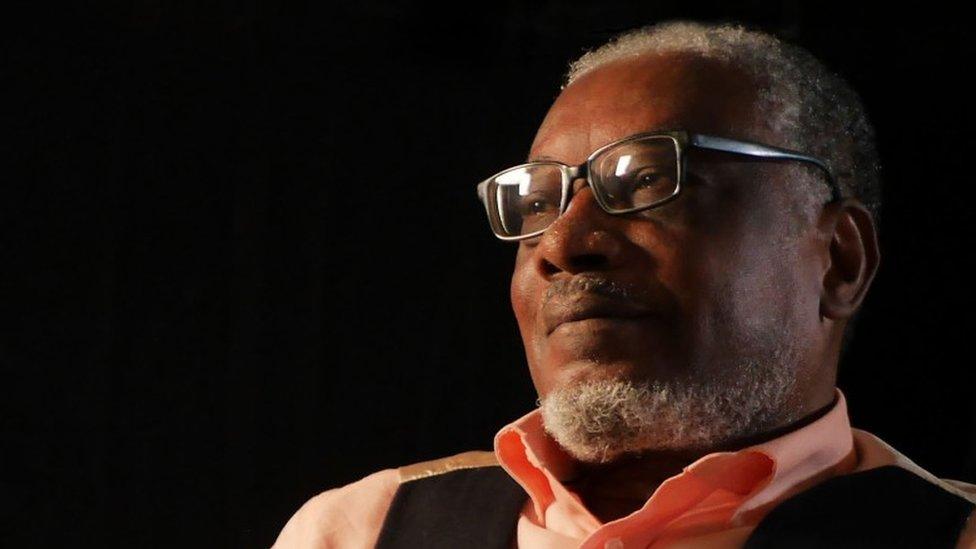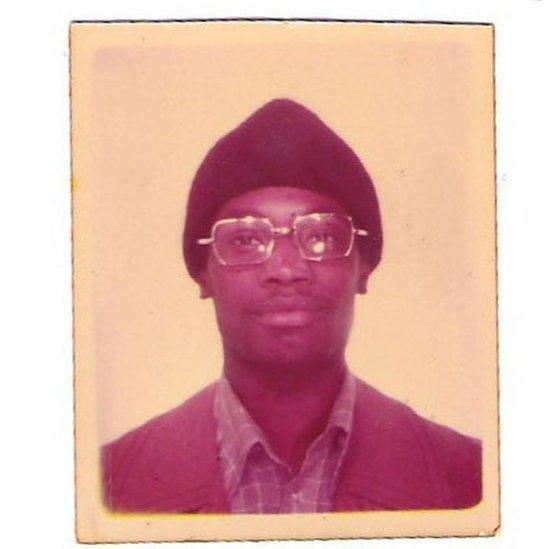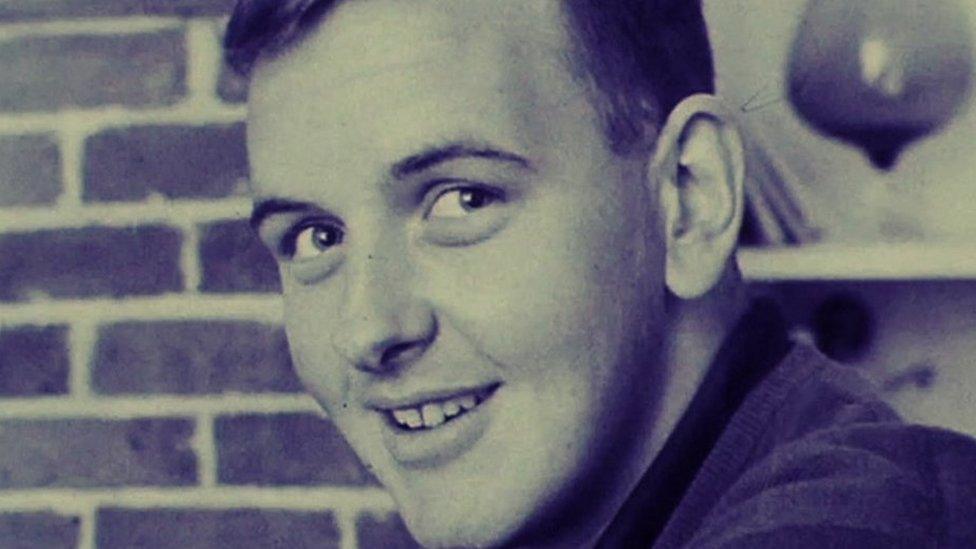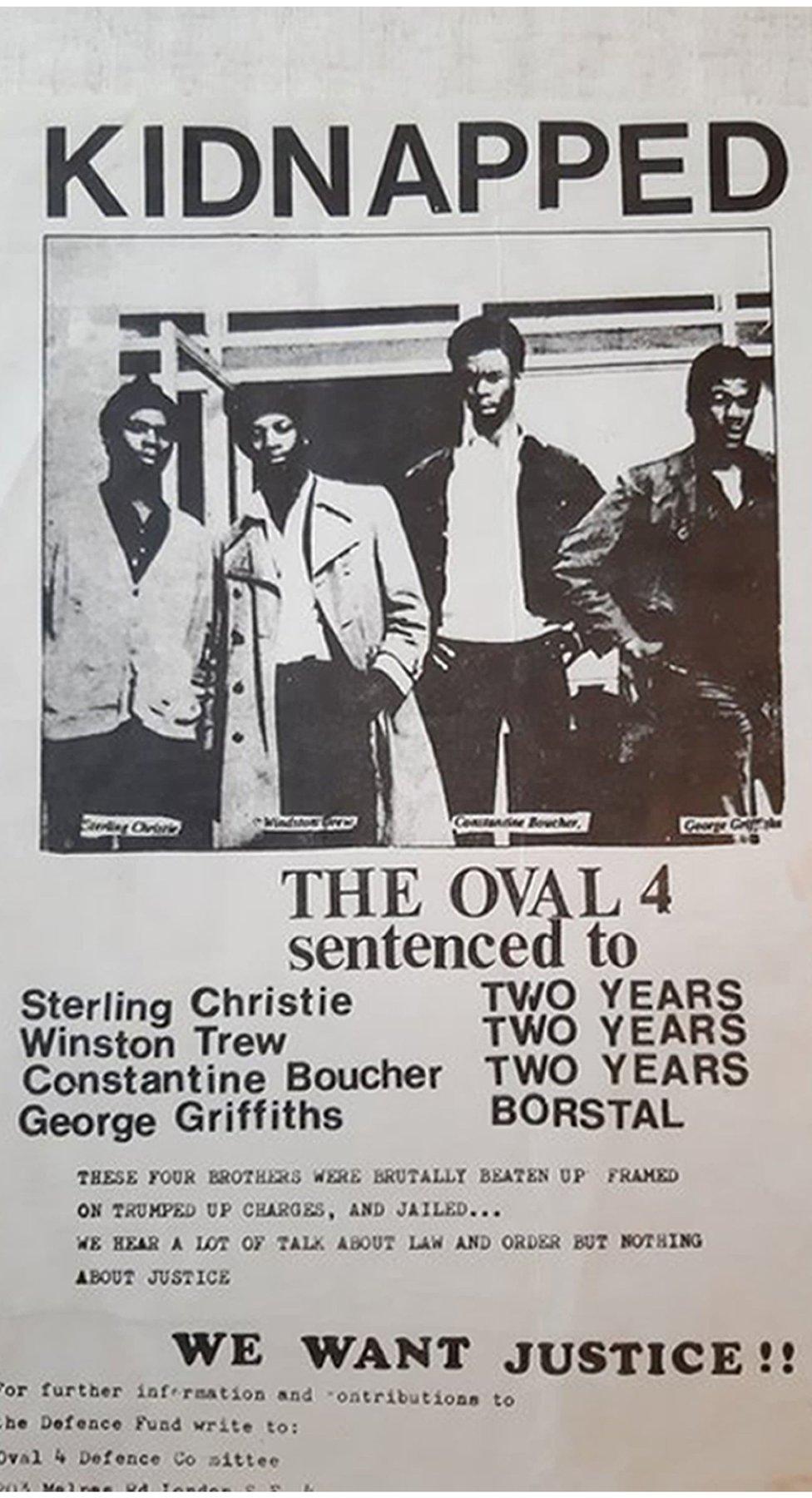Transport police apologise to British Africans for corrupt officer
- Published

Winston Trew, jailed for a crime he did not commit, later became a university lecturer
The British Transport Police (BTP) has apologised to the British African community for "systemic racism" and a corrupt officer in the 1970s.
A number of young black people were jailed for crimes they did not commit.
Derek Ridgewell gave false evidence at trials of groups of men including those who became known as the Waterloo Four, Oval Four and the Stockwell Six.
Current BTP Chief Constable Lucy D'Orsi said: "We cannot undo the past, but we can learn from it."

Winston Trew, pictured in the 1970s, said his life fell apart after he served eight months in prison
In the past two years, the wrongful convictions of the Oval Four and Stockwell Six were overturned at the Court of Appeal. In each case, a senior BTP officer offered an apology to the victims of the quashed case.
However, Winston Trew, who was one of the Oval Four, suggested to BTWSC, an African history education group, that BTP apologise to the wider British African community.
Mr Trew, along with Sterling Christie, George Griffiths and Constantine "Omar" Boucher were accused of stealing handbags in 1972. They spent eight months in prison for assaulting a police officer and attempted theft.
The Chief Constable said: "I am sincerely sorry for the trauma suffered by the British African community through the criminal actions of former police officer DS Derek Ridgewell who worked in BTP during the 1960s and 70s.
"In particular, it is of regret that we did not act sooner to end his criminalisation of British Africans, which led to the conviction of innocent people. This is simply inexcusable and is something that my colleagues and I are appalled by."

Det Sgt Derek Ridgewell died in jail in 1982
A judge halted a trial of the 'Tottenham Court Road Two' in 1973 when Det Sgt Ridgewell's evidence against two devout Jesuits from Rhodesia (now Zimbabwe), who were studying at Oxford University, became too outlandish.
He was transferred from the underground to work in a south London mail depot investigating mail theft.
He died of a heart attack in prison in 1982, serving a seven-year jail term.
Chief Constable D'Orsi said: "The actions of DS Ridgewell do not define the BTP of today which is enriched by highly professional, kind and committed officers and staff who are passionate about protecting the public. I have also met retired officers who are equally appalled by the criminal actions of DS Derek Ridgewell. I acknowledge that, during those times, systemic racism played a role in the culture of the force, as it did across many parts of society.
"Moving forwards, I would like to engage and work closer with the British African community. We cannot undo the past, but we can learn from it. This is an important and sombre point of reflection in our history.
"BTP is committed to combating racism, which includes Afriphobia, which led to these historic cases that targeted African youths and destroyed lives.
"Finally, I would like to reiterate my sincere apology for the trauma caused to the British African community by a corrupt BTP officer, whose misuse of his powers caused harm not only to the innocent young people criminalised, but also to their families and community."

A poster calling for justice for the Oval Four